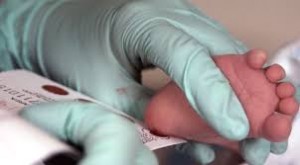Dan Hurley’s article, “A Drug for Down Syndrome,” appeared in The New York Times’ Sunday Magazine yesterday. It describes the research efforts of Dr. Alberto Costa, father of a daughter with Down syndrome, who is seeking to improve cognition for individuals with Down syndrome. The article was fair and balanced for the most part, emphasizing the idea that doctors approach Down syndrome from two perspectives–prevention (i.e. abortion due to prenatal testing) or treatment (i.e. medical interventions akin to the one Dr. Costa has developed). I suspect I will write more about this eventually, but for now I will simply include the comment I left in response to the article:
When my daughter Penny was born with Down syndrome five years ago, I wrote in my journal, “Can she live a full life without being able to solve a quadratic equation? Without reading Dostoyevsky? I’m pretty sure she can. Can I live a full life without learning to cherish and welcome those in this world who are different than me? I’m pretty sure I can’t.”
It’s not surprising that I love my child and that I want to defend her abilities. What is surprising is that having Penny in my life has enabled me to see that all people–those who are different from me by way of physical disability or ethnic background or education or age or any number of other factors–all have something to offer, if only I have eyes to see it.
I’ve come to recognize the inherent value in every human being, no matter how severe their physical or cognitive disabilities. I’ve also come to recognize the inherent potential in children with Down syndrome. Penny is learning to read. She has been able to write her name for years. She talks in full sentences and most people can understand her most of the time. Her “abilities” have come not as a result of medication, but as a result of a web of social and educational relationships. The people in Penny’s life see beyond her diagnosis to a bright, happy, impulsive, green-eyed little girl right in front of them.
I’m grateful to Dr. Costa and others for the work they are doing to serve individuals with Down syndrome. But I worry that people see Down syndrome as a problem to be solved via eradication (prenatal testing/abortion) or medication, when the larger problem is not within individuals with Down syndrome. The larger problem rests with those of us who are “typically developing” and cant’ make room for difference.
To read the article in full, click here.











